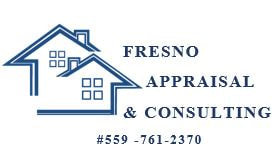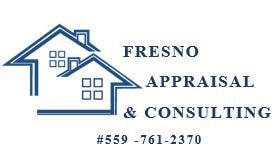Check off Estate Settlement

The list below is a highlight of what will need attention in the next few weeks.
One of the most important and in most estate the one that has the most value is the property or home. It would be wonderful if you could decide a value and have everyone agree. At the end someone will always wonder Was that the right price? Was mom's home worth more?
To keep the peace in your family contact us. We are unbiased professional appraisers that can answer your questions. Before filling out any appraisal order forms please give us a call. Your questions are important to me, and I want you to know I am here to help you.
We can work together to determine the type of appraisal you need. If you live out of town, I can assist you in contacting your tenants (if rented) or I can view the home with your permission.
The list below following are some of the general responsibilities of the executor in taking charge of the assets of the deceased, paying the debts, and distributing the assets to the beneficiaries. This list is overview of types of issue that may come up. Your lawyer will provide you with a complete list.
What are the responsibilities of the executor?
- If the home is vacant be sure it is secure. Depending on where the home is located it might be necessary to install an alarm and you may need to secure the windows and doors.
- Change the locks, turn off the automatic garage door opener and secure the sliding glass door.
- Keep up the appearances – do not let the front of the home turn into a jungle. It is advisable to keep the front yard green and mowed. If this is not possible then mow the brown grass and things tidy.
- If you have good neighbors keep them updated. They can help to keep an eye of the home.
- Keep the property taxes paid. The last thing you want is have a lien on the property.
- After the home is secure the hunt will start. You would be surprised where you will find things. My father-in-law did not have a safety deposit box, he simple hide things. (in the freezer, in the back of the toilet, under the floor and let’s not forget that cookie jar.
- If there is a safety deposit box, find the key. What happens when you cannot find a key? Go to the bank and explain the situation.
- When selecting a lawyer make sure he/she has experience in estate and wills. Before you sign anything ask “How much will you be charging? Know the fees.
- Locate all life insurance policies and notify the insurance company of the death and forward a copy of the death certificate to have the policy paid to the beneficiary.
- Notify all insurance companies including house insurance and car insurance of the death. Ensure that insurance is maintained make a list of all the assets and including stocks, bonds, pension funds, bank accounts, government investments, superannuation payments, holiday pay from work, work related life insurance or benefits for the spouse etc.
- Are there any interests in partnerships or companies and locate shareholders and partnership agreements and provide a copy to the lawyer for his examination. (there may be triggering clauses in those agreements that must be met quickly)
- In conjunction with discussions with the spouse,
- Locate the previous several year's income tax returns and provide copies to the lawyer or tax accountant. These must be reviewed quickly to ensure that no filing dates are missed. Government tax authorities do not care that the person is deceased. The executor may be personally liable for any tax penalties that are incurred because filing dates are missed.
- Pay the account of the funeral director. Your lawyer will tell you the priority of paying debts, but normally the funeral directors account is to be paid before most other debts.
- Make a list of all debts. This will include accounts for charge cards, house utilities, property tax arrears, income tax arrears, loan payments, outstanding leases, mortgages on house or vehicles, alimony or prior separation agreement. Provide this list and supporting documentation to the lawyer.
- Once all the assets have been located and the debts paid (including the account of the executor) then the estate will be disbursed in accordance with law and the terms of the Will. In many cases a sale of real estate and personal property may be necessary prior to distribution of the estate. This is where an Estate Settler representative will be invaluable. And since reasonable fees are allowed at no cost to you, the Estate will cover all the costs of Estate Settler.
- You will need to advertise for creditors in the local newspaper to ensure that all the debts are known and paid.
- Your lawyer will advise whether any court proceeding is required regarding the Will. This is called filing for Probate. Often if there is adequate tax advice at an earlier date, the requirement for Probate can be avoided. This will save the estate considerable money.
- You will need to notify the beneficiaries about their bequest and provided there is money left after the payment of all debts, the beneficiaries will receive their money or assets from you as Executor of the estate.
You may need to open up a Bank Account in the name of the Estate at your local bank using a notarial copy of the Will (or Probate if required) together with a copy of the death certificate. Use a checking account that you receive the checking back so you can verify that you paid the funds if required at a later date.
